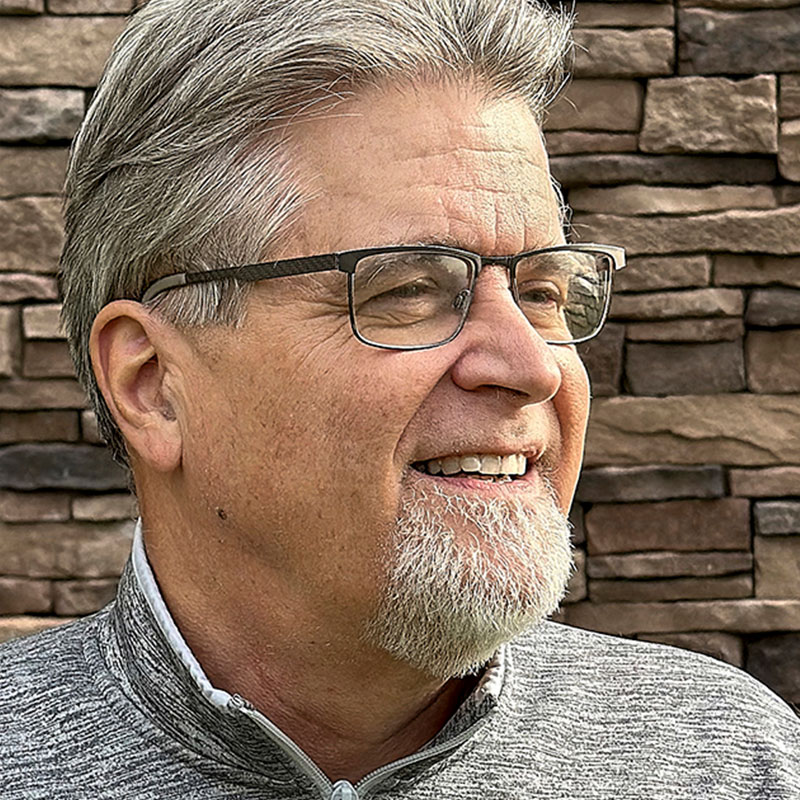
In my book, Breaking Bad Faith, I make the case that our modern society, with some notable exceptions, is committed to retaliation, retribution, and “redemptive violence” as the only way to fight evil in the world. We often ignore restorative justice. I show how the root of this belief is violent sacrificial religion that we derive from parts of the Bible, particularly argued by those who believe in its inerrancy. Evangelical Christians who take the Bible literally (and sometimes liberal Christians who buy into our retributive culture) promote punitive and violent solutions to society’s problems, much like the retributive narratives found in the Old Testament. They support things like a combative gun culture, harsh or long prison sentences, capital punishment, the justification of violent retaliation, militarism, and taking revenge in war. But this is a gross misreading of the full scope of the scriptures. It forces one to believe in a two-faced god—a god who loves and hates, forgives and severely punishes; a god who pursues peace and wages war. The problem is we don’t know which side of this god should show up and we’re often drawn to worship the militant god.
Yet the core of the message of most of the prophets, Jesus, and the authentic Paul is one of restorative justice rather than retribution. A justice that is rooted in compassion for all. It is a peacemaking message that doesn’t resist evil with violence or punitive methods but rather with restorative love—a love that treats enemies with dignity as human beings but challenges them in their evil ways, with the goal of restoring relationships and bringing true justice. The following are excerpts from Breaking Bad Faith on how restorative justice is superior to retribution or revenge. Footnotes after quotes can be found in the book.
_________________________________
Reclaiming Restorative Justice in the Path of Peace
We just saw how saying “Jesus is Lord” in the mid-to-late first century was not some call to believe in the deity of Christ or the evangelical paradigm. Rather, as David Bentley Hart says, “…it was the claim that all of the orders of power in the world—Empire, Religion, Caste, Class, Wealth, Gods of Nations—had been overpowered and made subject to a peasant called Jesus of Nazareth, whose rule is based on radical charity.”
Second, we’ve made the case that Jesus’ way is nonviolent, loving to all including one’s adversaries, and redemptive, in that its goal is not punishment of evildoers for punishment’s sake. Neither is it retribution, but rather its goal is to restore relationships. We’ve also established that Jesus and the earliest followers of his way were pacifists.
Moreover, the rationale behind this peaceable way is because it is precisely what humankind needs to survive. “He who lives by the sword, will die by the sword.” According to the gospels, Jesus predicted the demise and destruction of the Jewish Temple and city of Jerusalem, because its religious gatekeepers and zealous nationalistic movement would not accept his call for peace with the marginalized masses or with their enemies. Their zeal to punish the “sinful” and hate their enemies would ultimately destroy them.
[Social scientist] Rene Girard says this tendency for human self-destruction is born out of mimetic rivalries. The good guys (religious or politically worthy) must conquer the bad guys (the sinful scapegoats) to survive. But that is a fatal mistake.“Given that Girard believes our desires stem from social rivalry, his warning is: ‘Choose your enemies carefully because you will become like them.’ Girard unfashionably denied that there is a significant moral difference between parties to violent conflict: Both are caught up in a demonic logic that will end in mutual destruction.
Man is creating ‘more and more violence in a world that is practically without God,’ if you look at the way nations behave with each other and the way people behave with each other. History, you might say, is a test for mankind. But we know very well that mankind is failing that test…We must face our neighbors and declare unconditional peace. Even if we are provoked, challenged, we must give up violence once and for all.”
Giving up violence and retaliation for solving social problems is a tall order, given our society seems to buy into war and retribution from all sides. The evidence is that Republicans and Democrats alike can be warmongers and generally retributive.
To reclaim the path of peace, we need to acknowledge, on the negative side, the failure of both war and retributive, or punitive actions [redemptive violence], to both rehabilitate criminals and bring lasting peace to the world. We already addressed this in Chapter 8 [next section is a summary].
Redemptive Violence Doesn’t Work
The reason redemptive violence can be seen as a myth is because it doesn’t work, or it only works temporarily. As previously mentioned, Martin Luther King, Jr., said, “War is a poor chisel to carve out peace.” Violence only begets more violence and creates a cycle that is difficult to end. Violence and even most forms of traditional punishment have unintended consequences.
As far as violence, retribution, or punishment go as tools for change, if society uses them to try to change a criminal, an evil person, or an enemy, it typically backfires. For example, “The U.S. releases over 7 million people from jail and more than 600,000 people from prison each year. However, recidivism is common. Within 3 years of their release, 2 out of 3 people are rearrested and more than 50% are incarcerated again.” This means that imprisonment as punishment does not restore relationships or necessarily change people for the better.
Using violence in war also brings unintended consequences. In September 1940, Hitler began what came to be known as “The Blitz:” an ariel bombing campaign on England that lasted nine months. 80,000 bombs were dropped on London alone. Hitler and his generals fully expected the assault to break the morale of the nation, cause debilitating fear, and deflate the country’s will to resist. Instead, almost the opposite happened.
To be sure, there was great grief over the loss of life and wiped-out neighborhoods. Yet, overall, the will of the people was emboldened and unified. “Everybody helped each other out and no one cared about your politics, or whether you were rich or poor.” A British historian wrote, “British society in many ways became strengthened by the Blitz. The effect on Hitler was disillusioning.” Rather than punish the British into submission, the campaign only instilled further resistance. One study concluded “There is no evidence of breakdown of morale.”
[Furthermore], the Allied bombing of Germany probably prolonged the war, and the result was much more production of war implements in cities that were not bombed. The same can be said for the American bombing of North Vietnam from 1965 to 1968; the campaign was called Operation Rolling Thunder. It only emboldened the enemy to dig in and retaliate, thus prolonging the war. Secretary of Defense, Robert McNamara, became convinced as early as 1967 that both Rolling Thunder and the ground war in South Vietnam were not working.This principle can also be seen in the War on Terror. As Claiborne and Martin report, “The same can be said of terrorism or violence—when we return violence for violence, we add fuel to the fire. One soldier in Iraq said he went into the military to fight terrorism but ended up realizing that they were creating it. He said every person killed made the fire of rage and violence even stronger.”
The Intellectual Basis for Peacemaking and Restorative Justice
When it comes to war, we must also recognize, on the positive side, that the pursuit of pacifism has a rational basis for it established by social science. Girard has provided some of this for us:
“Whatever the vagaries of his reputation among academics, Girard’s most lasting cultural legacy is to provide an intellectual basis for Christian pacifism. Before Girard, pacifists could rely on little more than the sayings of Jesus. Girard’s theory of sacred violence provides a comprehensive psychology, anthropology, sociology, and theology of peacemaking. If Darwin made atheism intellectually respectable, then Girard has done the same for pacifism.”
Change Through Love Not Punishment
Moreover, in our personal and global conflicts, it is likely the same. You can’t change a lost or evil or racist or violent or sexist or homophobic person until they are ready to change—which usually comes after they experience some emotional or mental shock to their lives. And I don’t mean punishment from another. The shock typically has to be the variety that pulls them to move toward positive change. Retributive punishment pushes people away and reinforces their tendencies, or just puts fear inside. If it leads to change, it is superficial. If someone changes out of fear, they are only appeasing someone on the outside, not repenting on the inside.
Retribution or punishment does not have any power to change a person. But unconditional love and restoration do. Richard Rohr explains how real change in a person’s soul doesn’t come from enforcing some tit-for-tat punishment for the crime, but rather from the emotional experience of receiving love. A type of waking up. The apostle Paul put it this way, “God’s kindness leads you towards repentance” (Romans 2:4).
“This is why love and growth demand discernment, not enforcement. When it comes to actual soul work, most attempts at policing and conforming are largely useless. It took me most of my life as a confessor, counselor, and spiritual director to be honest and truly helpful with people about this. Mere obedience is far too often a detour around actual love. Obedience is usually about cleaning up, love is about waking up.”
Our society and most modern Christians have bought into these approaches to address disobedience, criminal behavior, evil deeds, violence, and civil conflicts: Punishment, imprisonment, gun rights, open-carry laws, and war are thought to be answers to these societal and global problems. Yet the peaceable way of Jesus of Nazareth has a profoundly different answer to these problems. “Jesus asks us to consider redemption and posits that only good conquers violence, and that we can covert the violent ones by responding only in love.”
Whether one is breaking their own bad and harmful faith paradigm or seeking to find ways of changing our violent, retributive-minded world, the answer is the path of peace. It is not fear of punishment that changes a person, but the experience of being loved, cared for, acknowledged, understood, respected, and corrected with the motivation to restore. Only then can one be challenged to rethink their own harmful, misinformed, and unhistorical worldview. Only then can they change for the good.
_________________________
To learn specific ways this can and has worked today, watch for the next blog article entitled, 3 Restorative Justice Stories that Will Blow Your Mind. Also, in Breaking Bad Faith, I spell out some alternative methods of imprisonment that produce overwhelmingly better results than most approaches of the current U.S. prison system. Finally, go here to see how to apply the principle of restorative justice to the Israel-Hamas War: An Empathetic, Peace Seeking Response to the Israel-Hamas War.
******
Michael Camp tends the Spiritual Brewpub, which helps disillusioned or post-evangelicals uncover historical facts and insights that help them deconstruct, rethink, and rebuild a more authentic faith or spirituality. He is the author of Breaking Bad Faith: Exposing Myth and Violence in Popular Theology to Recover the Path of Peace. To get specific help deconstructing conservative Christianity and rebuilding healthy faith, see Michael’s Religious Deconstruction Workshop.














